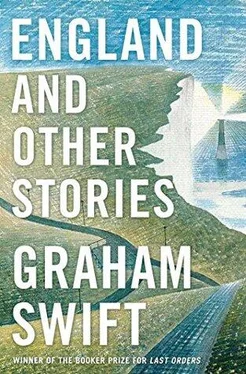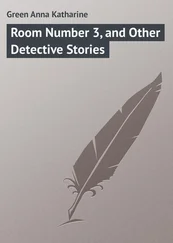‘And this of course was the time — just before I was born — that India got home rule. Home rule and partition. We cleared out — the British cleared out. India was divided and terrible things happened, and all this while there was this other division my father had made between India and himself. It can’t have been easy. He got his leg and he got the girl, but he lost something else. They say that amputees never stop feeling the “ghosts” of their limbs.
‘But of all of this, too, you could say it was a pretty good test.
‘And do I have to tell you the rest? Do I have to tell you that the man who saved my father’s leg, Dr Chaudhry, became a sort of second father to my father? And like an uncle to me. He became a friend of the family. And do I have to tell you that it was because of Dr Chaudhry — his name was Sunil — and with his encouragement that I set my sights on taking up medicine too? I was born in 1948. I was born along with the National Health. I was fated to spend my days in hospitals.’
Dr Shah’s smile, now more like a triumphant beam, would indicate that his story was over. He’d look distinctly young, even though he was over sixty and was even mourning his father.
‘But you are free to go,’ he’d announce — if he were speaking to one of his recovered patients. He’d hold out his hand, his brown hand with its fine dexterous fingers.
‘At this point I always like to say I hope I never see you again. Please don’t take it the wrong way. Take it the right way. Remember my father and his leg.’
There were things he might have added, but didn’t, things only to be inferred. He didn’t say that, though he’d been born into the Welfare State, he’d certainly known, once upon a time in Battersea, the ‘disadvantages’ of which his father spoke. He didn’t enlarge on the fact that, though he’d been encouraged by Dr Chaudhry, he hadn’t gone into orthopaedics, but cardiology. And he didn’t say that in becoming a doctor himself, not to say eventually a senior consultant, he’d become, too, like a sort of second father to his own father and — there was really no other phrase for it — had gladdened his father’s heart.
Cardiology, back in his days at medical school, had certainly become the glamour field. Everyone wanted to be a heart surgeon, in spite of the fact that the heart is only an organ like any other. No one gets worked up about a liver or a lung or a lower intestine. Or even perhaps a leg.
He’d held his father very gently, but wanting to hold him as tightly and inseparably as possible. His father had become as puny and as nearly weightless as a boy. He’d seen for a moment that photo, the men with their stumps. And for a moment he’d seen too the map of India as it had once appeared in old school atlases, in the 1950s, blush-red and plumply dangling, not unlike some other familiar shape.
‘TRAGEDY, TRAGEDY,’ Mick says. ‘Ever feel there’s too much tragedy about?’
We’re in the canteen. Morning break. Mick has the paper spread, as usual, over the table. He peers at it through his half-rims. Two damp rings where our mugs have been.
I thought: Now what?
‘Tragedy,’ he says. ‘When bad stuff happens, when people die. It’s always a tragedy, it’s tragic. That’s what the papers say. Tragic.’
‘Well, isn’t it?’ I say.
He looks up at me, over the half-rims, and takes his usual pause.
‘When Ronnie Meadows had his heart attack on the fork-lift, was that tragic?’
I have to take a little pause too.
‘Well — no,’ I say, wondering whether it’s the right answer. Whether it’s fair to Ronnie to say it wasn’t tragic.
‘Exactly,’ Mick says. ‘It was just Ronnie Meadows having a heart attack. But if Ronnie had died in, I don’t know, a train crash and it had been in the papers, they’d have called it tragic. See what I mean?’
True. But it’s not as if they’d have mentioned Ronnie at all. I could see the word printed in the paper. I could see the headline: ‘Rail Crash Tragedy’. Not just ‘Rail Crash’. I couldn’t see the headline: ‘Ronnie Meadows Dies in Rail Crash Tragedy’.
I was drumming on the edge of the table with my fingers.
‘So?’ I say.
‘Or if Ronnie hadn’t been a fork-lift driver, if he’d been, I don’t know, a Member of Parliament or someone on TV, and he’d died doing something just as boring — pushing a lawn-mower — they’d have called that tragic.’
‘So?’ I say again.
I thought: Drink your tea, Micky, I’m gasping.
‘So. So it’s just a word. It’s just a word they use in the papers about things that get into the papers. It’s just a word they use because they can’t think of what else to say. It has to be tragic.’
Mick likes to do this. He likes to read the paper — I mean not just look at it, but read it — and he likes to mouth off about whatever he’s reading to anyone he’s with. Which is me, Bob Lewis. But he likes to do it now specially, to make me suffer, now he’s trying to quit. I wanted him to finish his tea and fold up his paper so we could go outside for a smoke.
‘So it has no meaning?’ I say.
I thought: Idiot, why encourage him?
But I also thought it’s not true that no one called Ronnie’s death tragic. Mick wasn’t as close as I was, when the ambulance came. Ronnie’s wife had come too. She had to come. I’ve forgotten her name. Sandra? Sarah? And Mercer was there, in his white shirt, he had to be. He said, ‘It’s tragic, Mrs Meadows. Tragic. . tragic.’ He said it several times. He looked like he didn’t know what else to say, and Ronnie’s wife looked like she wasn’t listening.
Ronnie was still lying under a pallet cover, because it was technically an industrial accident and he couldn’t be moved yet. There was a pointy bit of the pallet cover that was Ronnie Meadows’ nose.
Did Mick hear what Mercer said? As I remember it, he was hanging back a bit. It was over three months ago. Ronnie had to go and drop dead right in the middle of the yard where everyone crosses to get to the gate. Even for a smoke at break time. I saw people skirting round for days, weeks afterwards. I skirted round myself. Then one day I realised, same as everyone else: I’ve just walked over the spot where Ronnie Meadows died and never thought about it.
But now I remembered Mercer saying ‘tragic’ to Ronnie’s wife.
‘Yes it has a meaning,’ Mick says. He takes a breath. I thought: Here we go. He could see me drumming my fingers.
He started wearing the half-rims a couple of months ago. Because of them everyone began calling him ‘Prof’. But I think the glasses only brought out something already there. It was like his face had been waiting for the glasses to complete it. Mick himself had been waiting. Mick Hammond, the man who likes to let you know he thinks.
‘It has a meaning. .’
He was all shy at first about wearing them, but now he fancies himself in them, he likes the business of looking over the top of them. And I quite like Mick in his reading glasses. Because they make him look serious, and that makes me want to laugh.
‘It has a meaning. .’
I could see he really was doing some thinking now, but he was also in a bit of a fix. I thought: You started this, Micky mate.
But mainly I thought: I’m gasping. And I thought: He’s only dawdling over his tea because he’s trying to quit the fags. He doesn’t want to cross the yard with me and slip out the gate to what we used to call Death Row. Till Ronnie Meadows died.
Mick’s a mate, but this whole giving-up thing’s a bastard. It doesn’t seem right for Mick to stop me nipping off for a drag. But it doesn’t seem right for me to nip off anyway without Mick. Even if he’s not going to smoke himself, he should come outside with me and stand beside me while I do. But that’s daft too.
Читать дальше












